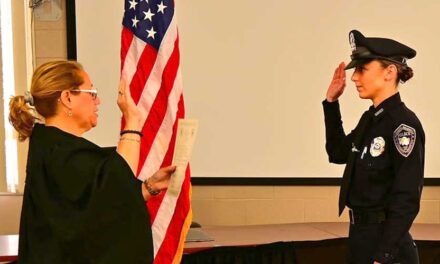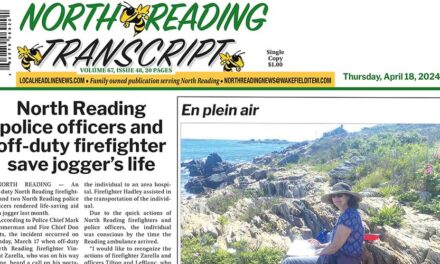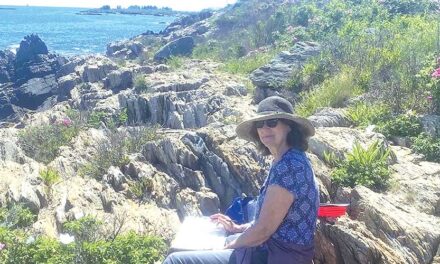Published in the July 13, 2017 edition
By BILL LAFORME
NORTH READING – A town resident has done some research into a fairly obscure moment in local history – when General Lafayette passed through the area on his tour of the United States in 1825 while he was in his late 60s.
Roy Walters of the North Reading Minit and Militia, the historical re-enactors who have also done reconstruction work on historic town buildings, told the Transcript in a recent email that he and Rachel Baumgartner of the Reading Public Library heard from the French Consulate in Boston seeking historical information for its Lafayette Trail Project, which would extend from Boston to New Hampshire along the route of his 1825 visit. Research is currently underway to identify prospective sites on the historic trail, and locally, the French were specifically interested in Skinner’s Hotel, once located in Reading, and Barnard’s Hotel, which was located in present day North Reading at the corner of Park and Main Streets.
The Wikipedia page devoted to Lafayette’s visit suggests that he would have passed through Reading (and present day North Reading) on or around June 17, 1825. Earlier that day, he helped lay the cornerstone for the new Bunker Hill Monument in Charlestown, which commemorated the nation’s 50th anniversary.
Walters reported that back in May, he and Baumgartner met at the Reading Library with Julien Icher, the French Consulate’s project manager for the Lafayette Trail, and they went over their findings. Walters also took Icher to view the site where Barnard’s Tavern formerly stood in North Reading. Walters also credited Pat Romeo for suggesting research tools in the history room at the North Reading Public Library that further helped out. Icher will also apparently be giving a series of lectures in the area on Lafayette’s 1825 visit, and the material on North Reading and Reading will likely be included.
Walters also explained that in its day, Barnard’s Tavern was a well known stopping point between Boston and Concord, NH on the former “Andover to Medford Turnpike.” That turnpike is today better known as Main Street in North Reading. It was constructed in 1806 and Walters noted that it left the “Old Andover Road” largely to local travel.
The tavern was opened by Jacob Barnard, who had also owned a successful tavern in the Dock Square area of Boston, and who went on to establish a stage coach line from Boston to Concord, NH. The tavern was destroyed by fire in 1867.
After his first arrival from France during the Revolutionary War, the Marquis de Lafayette came to fame in America as one of George Washington’s most trusted generals, fighting in the Battle of Brandywine and at the Siege of Yorktown at the end of the Revolutionary War, among other engagements. According to a Wikipedia page describing Lafayette’s U.S. tour, he was invited by President James Madison as a way to instill “The Spirit of 1776” into the next generation and also to help celebrate America’s 50th birthday. During a visit that lasted from 1824 to 1825, Lafayette reportedly traveled about 6,000 miles through every U.S. state at the time. He generally received celebrity/rock star treatment wherever he went on the journey.
A book published in 1829 in France detailed Lafayette’s journey through the U.S. and at the time it provided an early and significant account of life across the young nation. Lafayette also provided an enduring symbol of friendship between France and the United States. It is said that when General Pershing arrived in France with the first American troops in World War I, he uttered the phrase, “Lafayette, nous sommes si (Lafayette, we are here)” in a nod to his contributions to America.
Last year, the French Consulate in Boston also helped to organize Lafayette Day in Massachusetts, an event commemorating the friendship between the two countries that included the honoring of an American World War II veteran with the French Legion of Honor medal.




